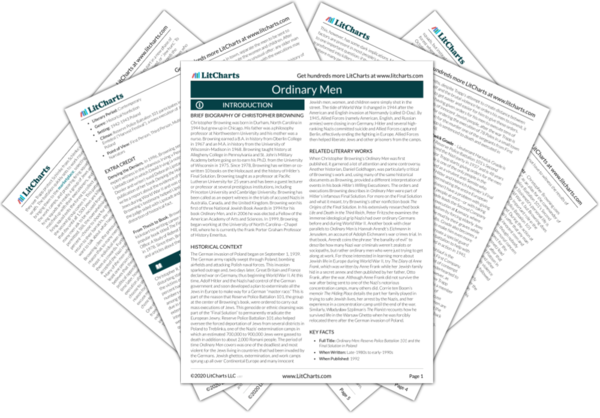The men undoubtedly do have ample reason to believe that many Poles were just as anti-Semitic as the Nazis. However, the reader must still remember Browning’s earlier point that the men naturally have more experience working with Poles who are turning Jews in than with Poles who are trying to help save Jews. Bentheim’s story about the Polish policeman who wouldn’t shoot the Jews is notable because it contradicts the image of all Poles as violently anti-Semitic. In Browning’s opinion, when the Germans describe Polish attitudes towards Jews, there is a good chance they’re actually describing their own attitudes towards the Jews because they are looking to both alleviate their own guilt and to distance themselves from racial hatred. This, however, still doesn’t mean that a lot of Poles weren’t anti-Semitic. As usual, it is important to remember that many Poles were probably willing to sell out or victimize Jews to save their own lives, not out of racial hatred. These contradicting possibilities further highlight how difficult Browning’s job as a historian and a writer is—there simply is no easy answer here, and even all of the material evidence Browning has at his disposal to try to find an answer is problematic and unreliable.
